- Home
- Melody Carlson
My Amish Boyfriend
My Amish Boyfriend Read online
© 2014 by Melody Carlson
Published by Revell
a division of Baker Publishing Group
P.O. Box 6287, Grand Rapids, MI 49516-6287
www.revellbooks.com
Ebook edition created 2014
All rights reserved. No part of this publication may be reproduced, stored in a retrieval system, or transmitted in any form or by any means—for example, electronic, photocopy, recording—without the prior written permission of the publisher. The only exception is brief quotations in printed reviews.
Library of Congress Cataloging-in-Publication Data is on file at the Library of Congress, Washington, DC.
ISBN 978-1-4412-4546-5
This is a work of fiction. Names, characters, incidents, and dialogues are products of the author’s imagination and are not to be construed as real. Any resemblance to actual events or persons, living or dead, is entirely coincidental.
Scripture used in this book, whether quoted or paraphrased by the characters, is taken from the King James Version of the Bible.
Contents
Cover
Title Page
Copyright Page
1
2
3
4
5
6
7
8
9
10
11
12
13
14
15
16
17
18
19
20
21
22
23
24
About the Author
Books by Melody Carlson
Back Ads
Back Cover
1
As my best friend Merenda and I evacuate the belching yellow school bus on the last day of school, a three-part plan congeals for me. Standing on the curb, watching that gross, smelly contraption growling away in a cloud of diesel smoke, I make my proclamation to Merenda. “I need to get three things this summer.”
Merenda ignores my proclamation as we race across the sunbaked parking lot. The asphalt is so hot it might be melting our flip-flops, but my mind is on my plan. To be honest, this plan was probably inspired by my history teacher. “People who fail to plan, plan to fail,” he told me as I was leaving his classroom today. Of course, I knew his clichéd challenge was meant to pressure me into signing up for his AP history class next fall, so I answered his cliché with another.
“What about the best laid plans of mice and men?” I asked.
He just laughed. “Quoting Robert Burns, are we?” He rubbed his chin in a thoughtful way. “Methinks you should sign up for AP English as well.” So before I left, I promised to consider some AP classes next year. But that’s a long way off.
“What were you saying?” Merenda asks as we catch our breath in the shade of the covered walkway next to our apartment complex. “What three things do you need to get?”
I hold up one finger. “First of all, I need to get my driver’s license. Sixteen is too old to be riding a smelly old school bus.”
“You got that right.” She nods eagerly.
I hold up a second finger. “Then I need to get a job.”
She looks less enthused about this. “That’s two. What’s the third thing you need to get?”
“A tattoo.” I give her a mischievous smirk.
“Right . . .” Her tone is doubtful. “Okay, I get the license and the job, Shannon, but why do you need a tattoo?”
“Why not?” As we enter the darkened stairwell, I explain my plan to get a monarch butterfly tattooed on my left ankle. “Not too big, but not too small. The butterfly symbolizes rebirth and freedom. This is going to be my summer of independence. Getting a tattoo will be like my badge of courage.”
“Like your mom will ever agree to a tattoo.” Merenda rolls her eyes. “Get real, Shannon. Your mom’s even more conservative than mine, and my mom would have a cow if I got a tattoo.”
“My mom will agree,” I insist.
“Yeah, right.” She shakes her head.
“I’ll just have her sign a release form when she’s groggy from her meds.”
“Really?” Merenda’s mouth twists to one side in a skeptical way.
“Well, she might agree even without her meds. This sickness has changed her some.”
“How’s she doing, anyway?”
“Once in a while she has a good day, which only means she can get out of her chair without getting sick. Most of the time she’s so dizzy, she can’t even stand.” I pause to fish my door key from my bag. “That’s why I need to get my license, so I can use her car. And then I need to get a summer job to earn some money. I honestly don’t know if Mom will ever be able to go back to work . . . and living on Social Security isn’t cutting it.”
“Well, good luck with your three-part summer plan.” Merenda pats me on the back as we pause on the third floor. “Can’t say that I envy you on the job part, though. I’m totally looking forward to a real vacation this summer. I plan to do absolutely nothing at my dad’s house. Well, if I can get away with it.” She gives me a slightly pitiful look. “But, hey, it would be so cool if you got your license, Shannon. Especially if you can use your mom’s car to go to school next fall. I’d be totally down with that.”
“Yeah. Me too.”
“And having a job might be kinda cool,” she adds hopefully.
“Yeah, especially if I find a good one. I already made my résumé, and I plan to start looking tomorrow. I’ll take my driver’s test on Monday. I’ve been studying, and I’m pretty sure I’m ready.” I make a cheesy grin. “So while you’re at your dad’s doing nothing, or vegging out in front of his big screen, I’ll be an independent working woman earning my own money. I’ll be driving my mom’s car and doing pretty much as I please.” I feel unexpectedly encouraged to think of it like this. My summer could turn out to be pretty cool after all.
Merenda’s mouth twists to one side. “Well, when you put it like that, it does sound kinda appealing.”
“Hopefully I’ll find a job I actually like. I’m going to apply at Marlee’s Thrift Shop to start with. I heard she might be hiring for the summer.”
“Keep me posted, okay?”
“Absolutely. And I’ll text you a photo of the tattoo as soon as I get it too.”
Merenda laughs, then opens her arms for a hug. “I’ll miss ya, Shannon.”
I hug her back. “Me too.”
“Tell your mom I’m still praying for her to get well.”
I nod. “Yeah, I will.”
“See ya—wouldn’t wanna be ya!” Merenda laughs at the old rhyme, waving as she disappears into the shadows of the hallway that leads to her apartment.
As I trudge on up the stairs to the top floor, I try not to feel too envious of my best friend. Despite my teasing Merenda about becoming a vegetable, I know she’s lucky to spend summers at her dad’s house. Not only does she escape the city, but her dad’s house is even by a lake, and her stepmom actually sounds pretty nice. Really, it would be a dream summer to me.
In most ways, Merenda and I have a lot in common. Both of us are only children. Both of us live with a single mom—although my mom is widowed and Merenda’s is divorced. And until last spring both of our moms worked full time at the same factory. Then my mom got sick. That’s when things began to change.
“Shannon?” Mrs. Wimple pokes her head out of her door. Spying me in the hall, she quickly steps out in front of me and tightens the belt of her raggedy pink bathrobe. Her damp gray hair sticks out like she’s just emerged from the shower. “I hoped that was you, dear. I wanted to catch you before you went in.”
I smile politely at my
elderly neighbor. Mrs. Wimple is a retired army nurse, and she’s been a real saint when it’s come to helping with my mom these last few months. “What’s up?”
Mrs. Wimple’s expression grows serious. “I’m worried about your poor mother.”
“Oh?” I bite into my lip, bracing myself for the worst. “Did Mom fall down again?”
Mrs. Wimple somberly shakes her head. “No, no, but she was so dizzy she would’ve taken a tumble if she’d tried to get out of her chair without help. The problem is that she couldn’t keep a thing down all day. And it’s like an oven in your apartment, but she refuses to run the air conditioner because of the electric bill. I’m concerned that she’s gotten herself dehydrated again.”
“I’ll make her a smoothie,” I assure her. “She always likes those.”
“There’s something else.” Mrs. Wimple puts a hand on my arm, stopping me from going. “I don’t like to interfere, dear, but I really think you and your mother should go stay with your grandparents—”
“Grandparents?” Is she serious? “I don’t think so, Mrs. Wimple.” I say the words slowly, mechanically. “I mean, from what I’ve heard, my dad’s parents . . . well, they weren’t the nicest people, if you know what I mean. They didn’t come to Dad’s funeral or even send a card.”
“I don’t mean your father’s family.”
“But my mom doesn’t have any family.”
“As a matter of fact, your mother does have family.” Mrs. Wimple pushes a wet strand of gray hair away from her face.
“Huh?”
“She told me all about it today. Your mother has relatives in Ohio.”
“What?” I blink in surprise.
Mrs. Wimple tugs me by the arm toward her door. “Come in here so we can talk. Hurry, before all my cool air escapes into the hallway.”
Feeling confused, I walk into the cluttered living room while Mrs. Wimple closes the door, then turns on a floor lamp. “What are you saying?”
“Just a minute.” Mrs. Wimple holds up a hand. “I need to get something.” She shuffles off to her bedroom.
I stand there waiting, trying to absorb what Mrs. Wimple has told me. My mother has relatives? Feeling baffled yet curious, I listen to the cheerful twitters of Mrs. Wimple’s parakeets and wonder what’s keeping her. Finally I wander into the kitchen to say hi to the birds. Mrs. Wimple has kept birds for as long as I’ve known her. She calls this pair Pearlie and Pokey and thinks of them as her children, but their rank-smelling birdcage is overdue for a cleaning. Probably neglected because of my mom.
“Here I am,” Mrs. Wimple calls out as she returns to the living room.
I leave the birds, returning to the living room to see Mrs. Wimple with her damp hair combed down so flat that her pale scalp shines through. Still wearing her pink bathrobe, she now has a zebra-print handbag looped over one arm. “I don’t know if your mother told you this or not, but my sister and I are taking a month-long cruise this summer. We leave on Saturday.”
“That sounds like fun. I hope you have a good time.” Thinking that’s all she has to tell me, and remembering how older people can sometimes be a little weird, I edge toward the door.
“I’ve arranged for Pearlie and Pokey to stay with Mr. Warren in apartment 537,” she continues as if she feels I need to know all about her vacation plans. “The problem is that I’m worried about your mother, Shannon. What will she do when I’m not here to help her?”
“Well, I’m on summer break now, so I’ll be around more,” I say, trying to disguise my uncertainty. “Although I might get a job too. At least I’d like to.”
“Yes, well, I’m afraid you’ll have to put that job on hold for now.”
“Why?”
“As I was saying, Shannon, your mother has family. And that is very good news, don’t you think?”
“I, uh, I don’t know. I mean, I always assumed my grandparents were dead or something. I thought Mom was an orphan. I mean, she doesn’t like to talk about it much, but I do remember her saying she lived in some kind of a group home when she was a teen.”
“It seems that your mother left home when she was very young, Shannon. Even younger than you are now. And you’re right, she was in foster care for a few years during high school. But as it turns out, she does have family, and I’ve taken the liberty of contacting them for you.”
“What?”
“I spoke to them today.”
“Seriously?”
“I’m not sure why your mother was estranged from her folks, but she gave me her parents’ phone number. I actually spoke to your mother’s brother this morning, and I was relieved to discover that he sounds like a decent, God-fearing man. He seemed very eager to have you and your mother come visit the family. They only live about five hours away from Indianapolis. It’s been all arranged for you to—”
“Are you kidding?”
“Not in the least.” Mrs. Wimple smiles. “Your uncle explained that you’ll need to take the bus to Hochstetler.”
“Hochstetler?” I feel like the floor has been pulled out from under me. “I—uh—I’ve never even heard of it.”
“Maybe not, but it sounds like a perfectly charming town with lots of delightful little shops. The woman at the bus station told me she’s been there before. She said that tourists flock to Hochstetler in the summer.” Mrs. Wimple reaches into her zebra handbag. “So I went ahead and purchased your bus tickets today.”
“Bus tickets?” I ask weakly.
“Yes, dear. Don’t worry, it’s my treat.” She presses a thin envelope into my hand. “I’ll drive you both to the bus station tomorrow. The bus leaves at 10:40 a.m.”
“But I don’t know what—”
“I know it seems a little sudden, but I do think it’s for the best. Strike while the iron’s hot, I always say.”
“But I—”
“Now, I don’t want you to worry about a thing, Shannon. Just make sure you and your mother are ready to leave by 10:00. That’ll give us plenty of time.”
“What if Mom doesn’t want to—”
“Your mother has already agreed that it’s the best plan,” she says firmly. “For everyone.”
“Really?” I feel completely blindsided by this. “Mom wants to go?”
Mrs. Wimple’s expression grows serious. “She’s very ill, Shannon. And you know that she has no health insurance now that she’s not working. She’s been struggling to get well, and I see her making a little progress, but what will happen when I’m gone for a month? Your mother needs more help and support than you can give her, and it seems her family is ready and able to step up. Truly, it’s a godsend, don’t you think?”
“Maybe . . . but how long will we be gone?”
“As long as it takes for her to get better. You do want her to get well, don’t you?”
“Yes, of course. But is she even strong enough to make this trip? And on a bus?”
“The bus station woman was very helpful. Your seats are reserved in the rear of the bus, near the bathroom, and she made certain no one else would be back there with you. Your mother will be able to lie down and rest. I suggest that you give her an extra dose of her medicine as soon as you board. That will relax her, and I expect she’ll sleep most of the way.”
“Even so, this is a lot to—”
“It’s all worked out, dear. I plan to fix you both some food and drinks to take along.” Mrs. Wimple sighs with satisfaction. “All you’ll need to do is keep your poor mother comfortable for the duration of the trip and make sure you get off at the right bus stop in Hochstetler. Your uncle has promised to be there to meet you.”
I am speechless. Totally blindsided. Is this really happening?
“I don’t expect you to thank me, dear. But I want you to do all you can to help your poor mother.” She pats me on the back. “Now, you’d better get moving. You’ll need to pack for the two of you. Don’t forget to bring a couple pillows for your mother. Maybe a small throw blanket too. The woman said the air-condit
ioning can get a little cool.”
“But what about our apartment and—”
“I have a key, and I’ll see to emptying your fridge and cleaning up some. And I’ll arrange to forward your mail and whatever else needs doing.”
“That’s very generous of you.” I stare at the blue envelope in my hand. “But it’s all so sudden. Are you sure my mom is really—”
“She’s very relieved, Shannon. Trust me. This is exactly what both of you need.” Mrs. Wimple gently nudges me out of her apartment. “I know you must have lots to do. Don’t let me keep you.”
I feel dazed as I go next door and unlock the door to the apartment Mom and I have shared for the last six years—ever since Dad died and we lost our house, like a lot of other families in our neighborhood did too. As I go inside, I remember how unhappy I was when we moved to this complex back then, but I realize that now this is home. It’s all we have. Suddenly the idea of leaving this pathetic little place, or perhaps even losing it if we can’t keep up with the rent—well, it feels pretty disturbing. As well as rather scary.
2
I quietly let myself into our apartment. Like in Mrs. Wimple’s apartment, the drapes are drawn, but with no air-conditioning, it feels hot and stuffy. Mom, as usual, is sleeping in her La-Z-Boy recliner in the tiny living room. The doctor recommended the chair for her last month because for some reason the reclined position helps with her dizziness. At first he diagnosed Mom with some kind of vertigo with a long name, called BPPV for short. BPPV sounded like a debilitating illness with no real cure or treatment, so I was relieved to find out that was wrong. However, it does make me question how much medical professionals really know.
When the doctor changed Mom’s diagnosis to Ménière’s disease, it was supposed to be good news. He said Ménière’s might be a temporary condition, and he prescribed diazepam to help alleviate her symptoms. While it’s nice having medicine to give her, I know these meds are a form of Valium, and according to Mrs. Wimple, they are highly addictive, which is why she strongly encouraged me to control them for my mom. But I have to admit, they do seem to help some. Mom never really gets better, but she doesn’t seem to be getting worse either. However, as the weeks and months have passed, the likelihood of her returning to work has seemed to steadily diminish.

 The Happy Camper
The Happy Camper Courting Mr. Emerson
Courting Mr. Emerson The Christmas Swap
The Christmas Swap Lost in Las Vegas
Lost in Las Vegas The Christmas Shoppe
The Christmas Shoppe Becoming Me
Becoming Me Finding Alice
Finding Alice Payback
Payback All for One
All for One Under a Summer Sky--A Savannah Romance
Under a Summer Sky--A Savannah Romance Face the Music
Face the Music Catwalk
Catwalk Never Been Kissed
Never Been Kissed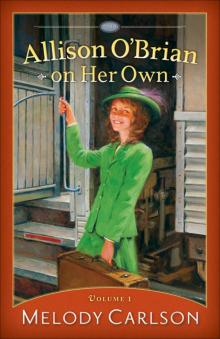 Allison O'Brian on Her Own
Allison O'Brian on Her Own An Irish Christmas
An Irish Christmas Beyond Reach
Beyond Reach Faded Denim: Color Me Trapped
Faded Denim: Color Me Trapped Three Weddings and a Bar Mitzvah
Three Weddings and a Bar Mitzvah Here's to Friends
Here's to Friends On My Own
On My Own River's Call
River's Call New York Debut
New York Debut Homeward
Homeward Love Finds You in Sisters, Oregon
Love Finds You in Sisters, Oregon Viva Vermont!
Viva Vermont! Notes from a Spinning Planet—Ireland
Notes from a Spinning Planet—Ireland Harsh Pink with Bonus Content
Harsh Pink with Bonus Content Perfect Alibi
Perfect Alibi The Christmas Pony
The Christmas Pony All Summer Long
All Summer Long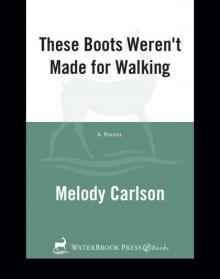 These Boots Weren't Made for Walking
These Boots Weren't Made for Walking Back Home Again
Back Home Again Torch Red: Color Me Torn with Bonus Content
Torch Red: Color Me Torn with Bonus Content Bitter Rose
Bitter Rose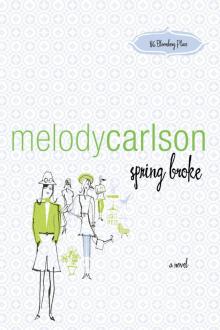 Spring Broke
Spring Broke Sold Out
Sold Out LimeLight
LimeLight Double Date
Double Date Homecoming Queen
Homecoming Queen A Not-So-Simple Life
A Not-So-Simple Life My Name Is Chloe
My Name Is Chloe My Amish Boyfriend
My Amish Boyfriend Once Upon a Summertime
Once Upon a Summertime Let Them Eat Fruitcake
Let Them Eat Fruitcake Deep Green: Color Me Jealous with Bonus Content
Deep Green: Color Me Jealous with Bonus Content The Joy of Christmas
The Joy of Christmas Memories from Acorn Hill
Memories from Acorn Hill Premiere
Premiere A Mile in My Flip-Flops
A Mile in My Flip-Flops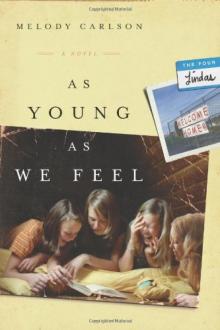 As Young As We Feel
As Young As We Feel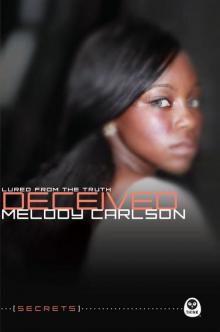 Deceived: Lured from the Truth (Secrets)
Deceived: Lured from the Truth (Secrets) Take Charge
Take Charge Road Trip
Road Trip A Simple Song
A Simple Song Three Days: A Mother's Story
Three Days: A Mother's Story A Dream for Tomorrow
A Dream for Tomorrow Looking for Cassandra Jane (The Second Chances Novels)
Looking for Cassandra Jane (The Second Chances Novels) Against the Tide
Against the Tide Your Heart's Desire
Your Heart's Desire The Christmas Blessing
The Christmas Blessing Love Gently Falling
Love Gently Falling On This Day
On This Day The Christmas Joy Ride
The Christmas Joy Ride Ciao
Ciao The Christmas Bus
The Christmas Bus Blade Silver: Color Me Scarred
Blade Silver: Color Me Scarred Dating Games #1
Dating Games #1 Double Take
Double Take Falling Up
Falling Up Last Dance
Last Dance Westward Hearts
Westward Hearts Glamour
Glamour Crystal Lies
Crystal Lies The Best Friend
The Best Friend Prom Date
Prom Date The Christmas Angel Project
The Christmas Angel Project Raising Faith
Raising Faith The 'Naturals: Awakening (Episodes 1-4 -- Season 1) (The 'Naturals: Awakening Season One Boxset)
The 'Naturals: Awakening (Episodes 1-4 -- Season 1) (The 'Naturals: Awakening Season One Boxset) Allison O'Brian on Her Own, Volume 2
Allison O'Brian on Her Own, Volume 2 Notes from a Spinning Planet—Papua New Guinea
Notes from a Spinning Planet—Papua New Guinea Once Upon a Winter's Heart
Once Upon a Winter's Heart Damaged
Damaged Lock, Stock, and Over a Barrel
Lock, Stock, and Over a Barrel Hometown Ties
Hometown Ties Anything but Normal
Anything but Normal Jerk Magnet, The (Life at Kingston High Book #1)
Jerk Magnet, The (Life at Kingston High Book #1) Damaged: A Violated Trust (Secrets)
Damaged: A Violated Trust (Secrets) Fool's Gold
Fool's Gold Girl Power
Girl Power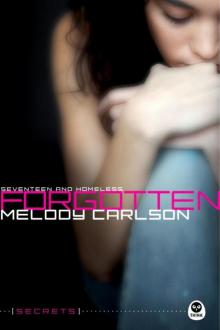 Forgotten: Seventeen and Homeless
Forgotten: Seventeen and Homeless Trading Secrets
Trading Secrets Blood Sisters
Blood Sisters Bad Connection
Bad Connection Spotlight
Spotlight A Simple Christmas Wish
A Simple Christmas Wish Love Finds You in Martha's Vineyard
Love Finds You in Martha's Vineyard Angels in the Snow
Angels in the Snow A Christmas by the Sea
A Christmas by the Sea It's My Life
It's My Life Mixed Bags
Mixed Bags The Christmas Dog
The Christmas Dog Secret Admirer
Secret Admirer Love Finds You in Pendleton, Oregon
Love Finds You in Pendleton, Oregon Trapped: Caught in a Lie (Secrets)
Trapped: Caught in a Lie (Secrets) The Gift of Christmas Present
The Gift of Christmas Present Hidden History
Hidden History Meant to Be
Meant to Be The Treasure of Christmas
The Treasure of Christmas Just Another Girl
Just Another Girl River's Song - The Inn at Shining Waters Series
River's Song - The Inn at Shining Waters Series That Was Then...
That Was Then...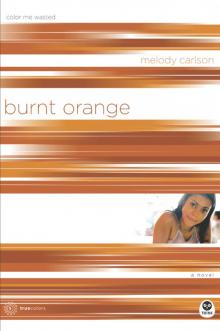 Burnt Orange
Burnt Orange Spring Breakdown
Spring Breakdown The Christmas Cat
The Christmas Cat Christmas at Harrington's
Christmas at Harrington's